The war of the children of Vladimir the Holy by the eyes of the authors of the Scandinavian sagas
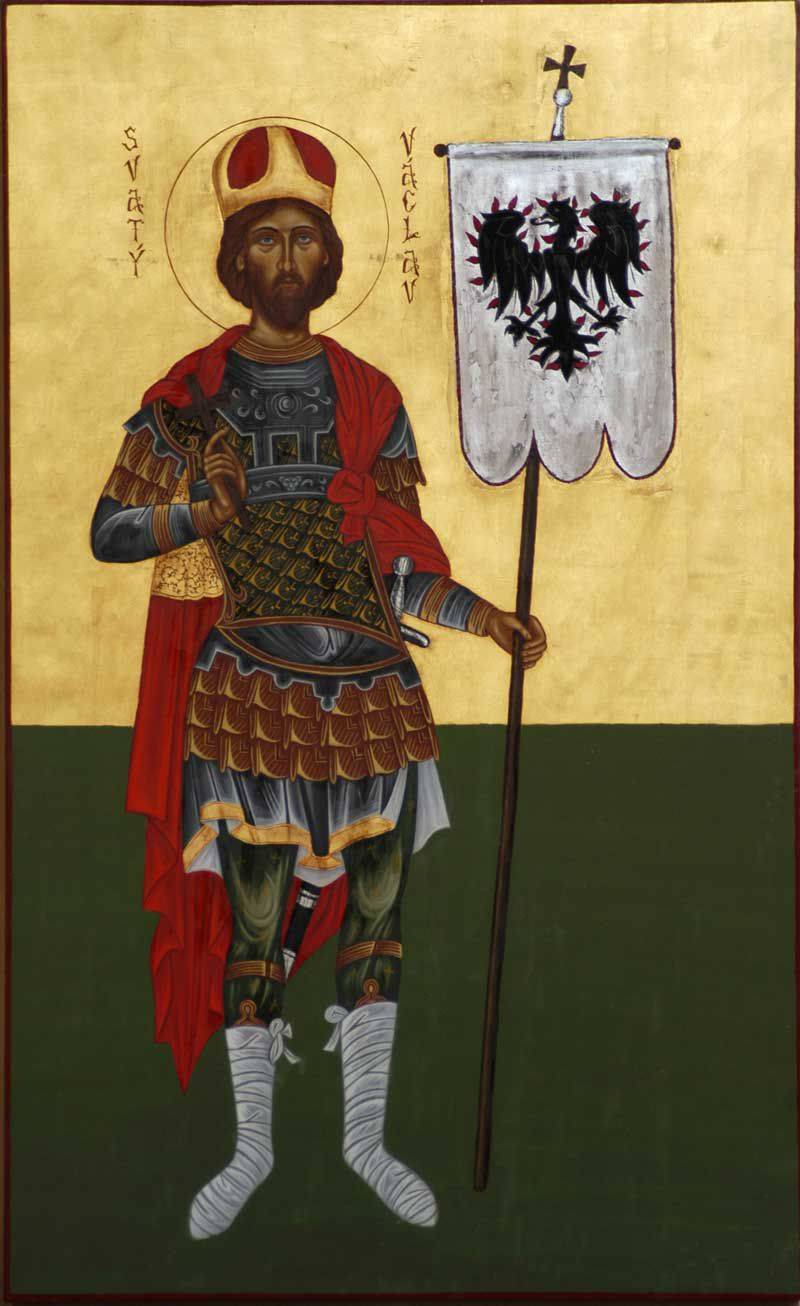
It was written under the son of Yaroslav the Wise Izyaslav around 1072, and was a reaction to a very specific historical situation: at that time the brothers were trying to drive (and driven away) Izyaslav from the Kiev throne. The canonization of the brother-loving Boris and Gleb was supposed to temper (but did not temper) the claims of the younger brothers Izyaslav. The unfortunate Svyatopolk turned out to be the most suitable candidate for the role of a villain, since he left no offspring that could protect his honor and dignity. An indirect proof that contemporaries did not consider Boris and Gleb as saints is the fact that during 30 years after their murder (until the second half of 1040), not a single Russian prince was called by these names (either Roman or David baptismal names of these princes). Only the sons of Chernigov Prince Svyatoslav (grandchildren of Yaroslav) appear the names of Gleb, David and Roman. The next novel is the son of Vladimir Monomakh (the great-grandson of Yaroslav). But the name Svyatopolk appears in the princely family during the life of Yaroslav: he was given the firstborn of the eldest son of the prince, Izyaslav.
In this situation, the interests of Izyaslav closed with the interests of the local Orthodox clergy, who, having received the first Russian saints, could not allow other sources to compete (and even more so - different interpretations) with the "Legend ...". And since the chronicles were compiled in monasteries, all the old texts were brought into line with the official version. By the way, the absolutely neutral Greek metropolitan expressed great doubts about the "holiness" of Boris and Gleb, even the "Legend ..." does not deny this, but in the end, he was forced to give up. Currently, this legend has been archived by serious historians and is mainly promoted by the Orthodox Church.
Professor of the University of Warsaw Andrzej Poppé confidently states in his work.
He is not alone in his opinion. Any impartial historian who studies the events of those years inevitably comes to the conclusion that the “blessed” Boris was not of this world could not have become the favorite of belligerent Prince Vladimir, whose character, judging by the facts of the chronicles, and not the inserts of later scribes, did not change a bit after the adoption of Christianity.
What happened on the territory of Kievan Rus in those early years? By the time of Vladimir Svyatoslav's death, his son Boris was in Kiev in fact in the role of co-ruler of a huge country, which, of course, could not please his brothers. As a result, the eldest son of Vladimir - Svyatopolk - was accused of treason and thrown into prison. German chronicler Titmar Merseburg (Thietmar von Merseburg; 25 July 975 g. - 1 December 1018 g.) Reports:
Yaroslav, according to S. Solovyov, “did not want to be Boris’s bearer in Novgorod and therefore was in a hurry to declare himself independent”, refusing to pay 1014 to pay annual hryvnia to 2 000 hryvnia. The old prince began preparations for war with him, but, in the words of the chronicler, "God does not give the devil joy": in 1015, Vladimir suddenly fell ill and died. Sviatopolk, taking advantage of the confusion in the city, fled to his father-in-law, the Polish king Boleslaw the Brave (and appeared in Russia only after three years — together with Boleslav).
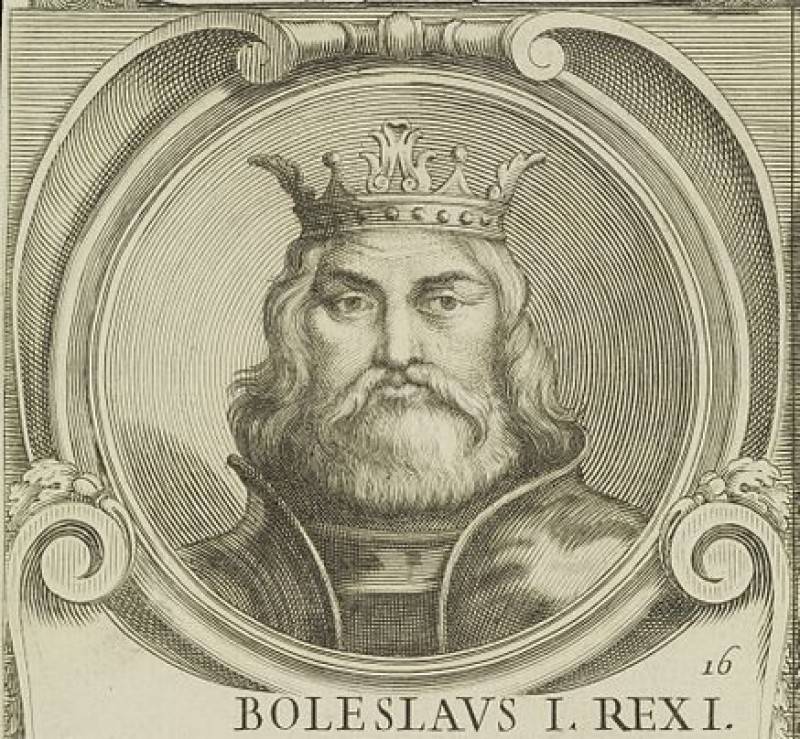
In Kiev, remained the favorite son of Vladimir Boris, who collected troops to continue the work of his father and punish the rebellious brothers. As a result, a brutal war broke out between the talented and ambitious sons of Prince Vladimir. Each of them had its own foreign policy priorities, its allies and its own view on the further development of the country. Ruling in Novgorod Yaroslav focused on the countries of Scandinavia. Boris, who remained in Kiev, was against the Byzantine Empire, Bulgaria, and he never disdained an alliance with the Pechenegs. The unloved father (or rather, his stepfather - Vladimir took the pregnant wife of his murdered brother) Svyatopolk - to Poland. Mstislav, who was sitting in reign in the distant Tmutorokani, also had his own interests, and, moreover, very far from the all-Russian ones. The fact is that the Slavs among his subjects were a minority, and he depended on the mixed population of this seaside principality no less than Yaroslav from the willful inhabitants of Novgorod. Bryachislav, the father of the famous Vseslav, was “for himself” and for his Polotsk, pursuing a cautious policy on the principle “better a bird in the hand than a crane in the sky”. The remaining sons of Vladimir quickly died, or, like Sudislav, were imprisoned in a dungeon, and did not play an important role in the events of those years. Yaroslav, the builder of cities and cathedrals, the scribe and enlightener who did so much later to spread and consolidate Christianity in Russia, was at that time at the head of the pagan party ironically. In the civil war, he could only rely on the Vikings, many of whom turned out to be in a foreign land because they preferred Thor and Odin to Christ, and to Novgorodians, who could not forgive Vladimir and the Kievans who came with him with the recent "baptism with fire and sword." Having won the internecine war, Yaroslav managed to unite all the above-mentioned tendencies in his foreign policy, for which he was later called the Wise. He himself was married to a Swedish princess, one of his sons married the daughter of a Byzantine emperor, the other to a German countess, and married his daughters to the kings of France, Hungary and Norway.
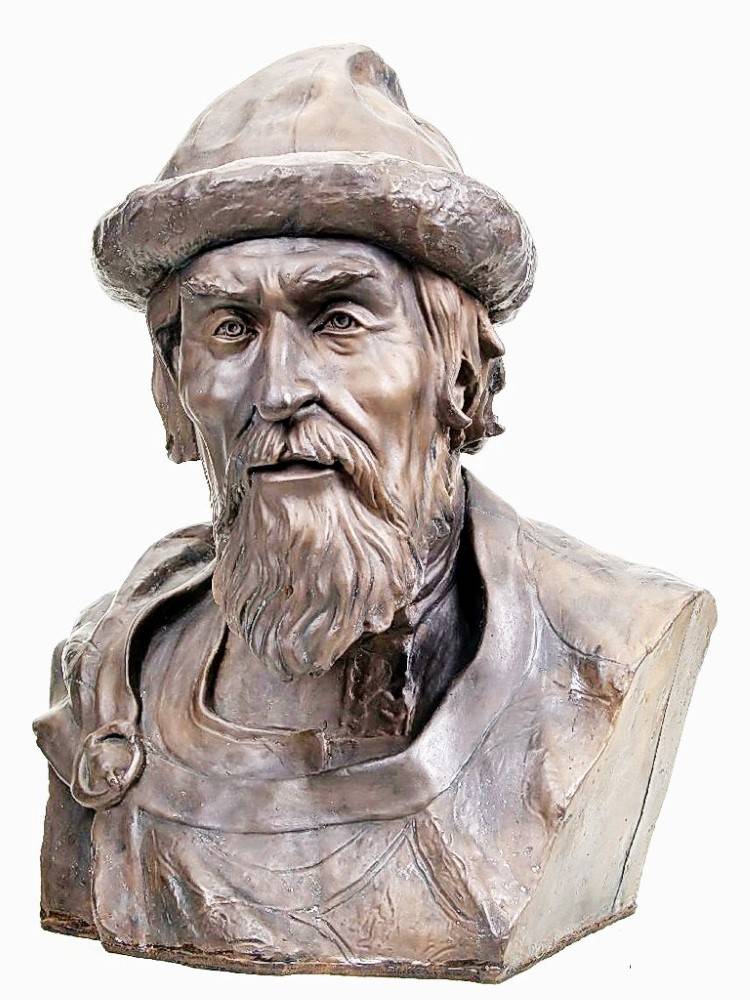
But back in 1015, in which Yaroslav, who loved to surround himself with the Scandinavians, nearly lost the favor of his Novgorod subjects:
The prince, in response, "called upon himself the best husbands who killed the Varangians, and, having deceived them, he interrupted also." However, the hatred of Novgorodians to the people of Kiev at that time was so great that for the sake of the opportunity to take revenge on them they accepted Yaroslav’s apology and reconciled with him:
Everything would be fine, but as a result of these events on the eve of a decisive clash, when every professional warrior was counted, the Varangian squad of Yaroslav thinned out. However, news of the imminent war in Gardariki has already reached Eymund Khringson - the leader of the Vikings, who at that time quarreled with the local authorities:
Pay attention to what precise information and what a brilliant analysis of the situation!
Now let's talk a little about this extraordinary man. Eimund is the hero of two sagas, the first of which (The Strand of Eimund) is preserved in the Saga of the Holy Father in the Book from the Flat Island.
This saga states that Ejmund was the son of a small Norwegian king, who ruled the Khringarik county. In his youth, he became the sister of Olav - the future King of Norway, the baptist of this country, as well as the patron saint of the city of Vyborg.
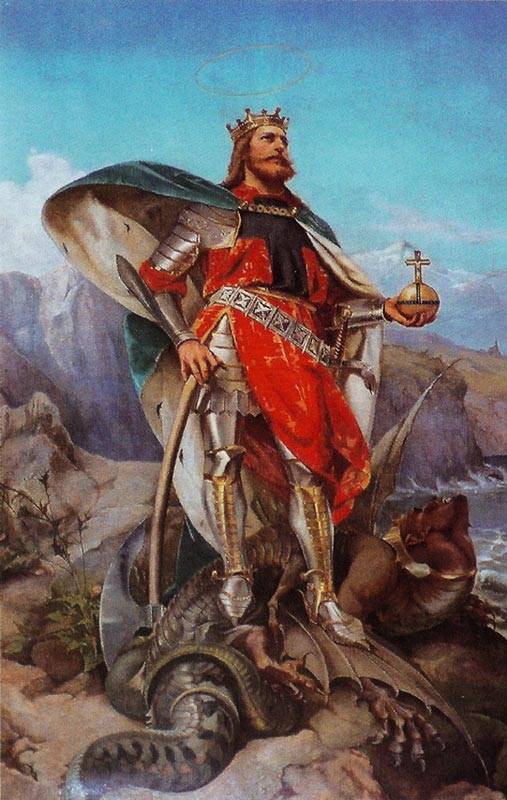
Together they made many Viking trips. The friendship ended after Olav came to power. The future saint's hand was hard, among the nine petty kings who lost their lands, and some - and their lives, turned out to be the father of Eymund and his two brothers. Eymund himself at the time was not in Norway.
“Nothing personal, such work,” Olav explained to his returning twin.
After that, he probably transparently hinted to him that the sea kings (which Eymund had now lost in the ancestral land) were marching into the bright future of Norway and without need. However, Aymund, being a clever man, himself guessed everything: the fate of his brother, Hryorik (Rurik), whom Olav ordered to blind, he did not want.
The author of the other, the Swedish saga (The Ingvar Traveler Saga), decided that there was nothing of such a hero as Eymund to give to his neighbors and declared him the son of the Swedish king Eirik's son. This source refers to the sagas of ancient times and is filled with stories about dragons and giants. But, as a prologue, an alien fragment is inserted into it - an excerpt from some historical "royal" saga, which in many ways echoes the "Strand about Eimund". According to this fragment, Eymund's father (Aki) was just a hovding who, in order to marry the king's daughter, killed a more suitable candidate. Somehow he managed to come to terms with the king, but the "sediment" apparently remained, because it ended up killing Aki and confiscating his lands. Eimund was brought up at court, here he became friends with his niece - the daughter of the new King Olav Shetkonung:
says the saga.
This gifted girl was called Ingigerd, later she will become the wife of Yaroslav the Wise.
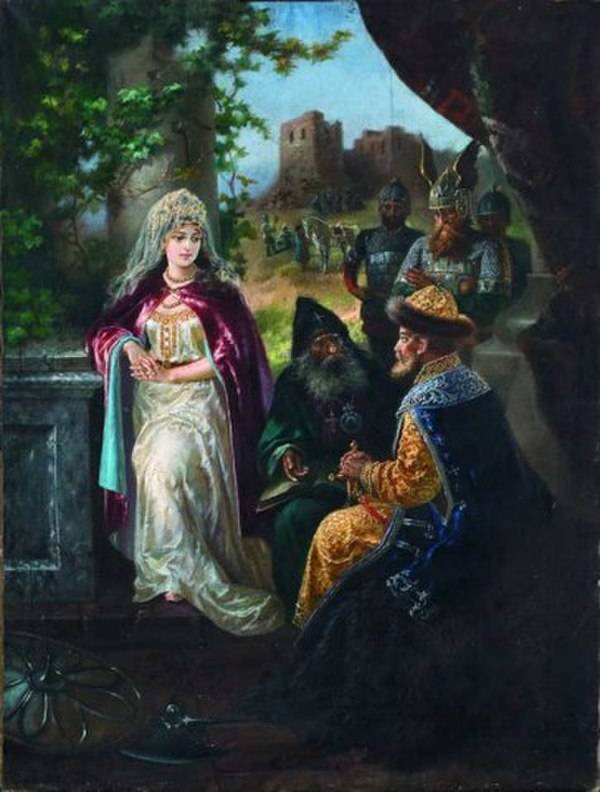
“She was wiser than all women and beautiful in herself,” says Ingigerd in the royal saga Morkinskinna (literally “Moldy Skin”, but in Russia it is more known as “Rotten Skin”). From myself, perhaps, I would add that the only thing that cheered Ingigerd the Norns - a good character. If you believe the sagas, and the father suffered with her, while not married, and Yaroslav then got.
But thoughts of injustice did not leave Eimund ("it seemed to him that ... it was better to seek death than live in shame"), so one day he and his friends killed 12 warriors of the king, who went to collect tribute to the land that previously belonged to his father. Wounded in this fight, Eymund was outlawed, but Ingigerd sheltered him, and then - "secretly brought the ship to him, he went on a Viking campaign, and he became a lot of good and people."
Who was Eimund after all - a Norwegian or a Swede? I like the Norwegian version more, because The Saga of Saint Olav is a much more substantial and trustworthy source. Here is the Swedish jarl Ryngwald for Ingigerd, of course, was his man. She commissioned him to manage Aldeygüborg (Ladoga) and the adjacent area, which she received personally from Yaroslav as a vein. And the Norwegian Aymund was clearly a stranger to her. The information, which is then reported in "Strands ...", does not correspond to the stories about the tender child-like friendship of Eymund and Ingigerd. The relationship between the princess and the "condottiere" is the relationship of opponents respecting each other. Eymund says to her relative and comrade Ragnar that "she doesn’t trust the lords because she is smarter than King." When Aymund decided to leave Yaroslav in Polotsk, Ingigerd asked for a meeting, where, in her sign, people who had come with her tried to grab the Viking (she believed that the Norwegian would be dangerous in the Polotsk service). Eimund, in turn, later, already being in the service of Bryachislav, captures the princess in captivity (or rather, kidnaps during the night transition). Nothing terrible happened to Ingigerd, and even her honor was worried: the captivity was presented as a voluntary visit to countrymen with a diplomatic mission. At the suggestion of Eimund, she acted as an arbitrator and drafted the terms of the peace treaty of Yaroslav and Bryachislav, who satisfied both sides and put an end to the war (the girl, apparently, was really sensible). Interestingly, in this contract (according to the author of the saga), Novgorod is called the main and best city of Russia (Kiev - the second, Polotsk - the third). But no matter what nationality Eimund was, the very fact of his existence and participation in the war of Vladimir’s children is beyond doubt.
Both sagas unanimously report that in 1015, the earth (even in Norway, even in Sweden) literally burned under Eymund's feet. However, the sea hospitably spread the waves under the keels of its ships. A squad from 600 personally experienced warriors devoted to him waited for an order to sail even to England, even to Ireland, even to Friesland, but the situation was set to go east - to Gardariki. Eymund didn’t care against whom to fight, but Novgorod was much closer to Kiev, and Yaroslav was also very well known and very popular in Scandinavia.
“I have a team of men with swords and axes,” Aymund told Yaroslav confidentially. “The guys who know what dane gold knows firsthand. It requires all inclusive, airy silver (216 grams) to every warrior and another half to airy every helmsman, and a share in the prey, of course. Do you think it’s better for us to be accommodated: you or your brother? "
“Of course I have,” Jaroslav smiled gently, “What is all inclusive in Kiev? So, the name is one. Only I have completely finished silver. Yesterday I gave the last one” (the king was good, but very greedy — all Scandinavians talked about it that way) .
"Oh, well," said Eimund, "take the beavers and sables."
The number of Varyags in the army of Yaroslav, of course, was much more than 600 people. Around this time, two more large Norman detachments acted in Russia: the Swedish jarl Ryognvald Ulvsson and the Norwegian jarl Svein Hakonarson (who, like Aymund, decided to spend some time away from the "holy" Olav). But there was no person who would write his saga about them.
Meanwhile, Eimund was not in vain and very on time, because soon Buritslav and the Kiev army approached. Now let's try to figure out which of the Russian princes is hiding under this name. The second in a row translator of "Strands ..." OI Senkovsky suggested that this is a synthetic image of Svyatopolk the Accursed and his father-in-law Boleslav the Brave. And what of this? There were some polkans in Russia - people with heads of heads, and why should there not be a "Bolepolk" (or "Svyatobolyu")? Let him stand next to Sineus (sine hus - "his kind") and Truvor (thru varing - "faithful retinue"). Even NN Ilyin, who in the middle of the 20th century, first suggested that Boris was killed by order of Yaroslav the Wise, continued to consider Buritslav as a collective image of Svyatopolk and Boleslav. Since childhood, the alien legend implanted in the consciousness has not been let go, literally shackling hand and foot. And only in 1969, academician VL Yanin "called the cat a cat", declaring that Buritslav could not be anyone else except Boris. At heart, the researchers of this problem have long suspected it, but the power of tradition was still strong, so the "storm in a glass of water" was a great success. When the waves in the glass have subsided a bit, all more or less adequate researchers realized that, whether someone likes it or not, it’s now simply indecent and impossible to call Boris Svyatopolk. Therefore, we will consider him exactly Boris. In any case, with Svyatopolkom Yaroslav, who was in Poland at that time in 1015, he could not have fought on the bank of the Dnieper even with a very strong desire. This battle is described in both Russian and Scandinavian sources. Both The Tale of Bygone Years and The Strand of Eimund report that the opponents did not dare to start the battle for a long time. The initiators of the battle, according to the Russian version, were Novgorod:
"Strand ..." also claims that Yaroslav entered into battle on the advice of Eymund, who declared to the prince:
And here is how sources tell about the course of the battle.
"STORY OF TEMPORARY YEARS":
Note that the Russian chronicler in this passage contradicts himself: on the one hand, the soldiers of Yaroslav are sent to the other side of the Dnieper in boats and the Pechenegs cannot come to the aid of the people of Kiev because of the unfrozen lake, and on the other - under the opponents of Novgorod "the ice breaks ".
"STRAIGHT ABOUT EYMUND":
After that, Yaroslav entered Kiev, and the people of Novgorod there repaid in full for the humiliation of their city: acting with the methods of the well-known Dobrynia (uncle Vladimir "Saint"), they burned all the churches. Naturally, they did not ask Yaroslav for permission, and the prince was too wise to openly hinder the “innocent” games of his only allies. And where, if you believe the Scandinavian sources, the army of Boris retreated, what do you think? In Bjarmland! If you have already read the article here “Travels to Biarmia. Mysterious country of the Scandinavian sagas ", you understand that in the far Biarmia, to the north, closed by the army of Yaroslav, Boris could not get through, even if he very much wanted to ride "on fast-moving deer". Biarmia remains close - Livonian. From there, a year later, Boris will come to once again fight with Yaroslav, and in his army there will be a lot of biarmy. If you believe "Strands about Eymund," during the siege of an unnamed city in the saga, Yaroslav, protecting one of the gates, will be wounded in the leg, after which he will limp for the rest of his life. The anatomical study of his remains by D. G. Rokhlin and V. V. Ginzburg seems to confirm this testimony: at about the age of 40, Yaroslav had a fracture of the leg, which complicated the congenital claudication, which his opponents always reproached. And then Boris will come again - with the Pechenegs. Eimundu such obtrusiveness, apparently, began to bother, and, after the victory, he asked Yaroslav:
According to the same source, Yaroslav then said to the Varyag:
Having received this answer, Eymund, his cousin Ragnar, the Icelanders Björn, Ketil and another 8 man disguised as merchants infiltrated Boris’s camp. At night, the Vikings simultaneously stormed into the princely tent from different sides, Eimund himself cut off Boris's head (the author of "Strands ..." presents this episode in very great detail - the narrator is clearly proud of this operation, which is undoubtedly brilliant in execution). The turmoil in the Kiev camp allowed the Varangians to leave the forest without a loss and return to Yaroslav, who reproached them with excessive haste and arbitrariness and ordered them to solemnly bury their "beloved brother." Nobody saw the murderers and the people of Yaroslav, as representatives of the closest relative of the deceased Boris, quietly came for the body:
The death of Boris did not solve all the problems of Yaroslav. The prince-warrior Mstislav Tmutorokansky was still waiting for the right moment. Ahead was the unsuccessful war with the Prince of Polotsk Bryachislav (during which Ingigerd unexpectedly had to act as an arbitrator and arbitrator). The cause of the wars with Bryachislav and Mstislav most likely was the injustice of capturing the heritage of the murdered brothers by Yaroslav alone: according to the traditions of that time, put the deceased on should be divided among all living relatives. Therefore, Yaroslav easily agreed to transfer part of Kenugard to Bryachislav - not the city of Kiev, and not a great reign, but part of the territory of the principality of Kenugard. Eimund, according to the saga, received from Bryachyslau rar ríki er þar liggr til - some kind of "near (Polotsk) lying area" (and not Polotsk, as they often say) - in exchange for the obligation to protect the frontiers from the raids of other Vikings. In the same way, Yaroslav will easily make concessions to Mstislav after being defeated in the Battle of Deciduous in 1024 (in turn, the victorious Mstislav will not claim to be "superfluous" and will not enter Kiev, although there was no one to stop him). And Svyatopolk still, thanks to the help of his father-in-law Boleslav the Brave, will smash Yaroslav’s army on the Bug. The saga does not report on this military campaign - they assume that it came during the quarrel between Yaroslav and Eimund: both sides tried to change the terms of the contract all the time, Yaroslav delayed with the payment of his salary, and Aymund, in any case convenient for him (but very uncomfortable for the prince) He demanded that silver be replaced with gold. However, it is possible that the saga author simply did not want to talk about defeat. Yaroslav then found himself in the most desperate situation. He did not receive help from the Kiev offended by him and returned to Novgorod with only four soldiers. To prevent his flight "beyond the sea", the Novgorod posadnik Kosnyatin (Dobrynia's son) will order to chop all the ships. And the townspeople who entered Kiev, Svyatopolk, organized a solemn meeting with the participation of nine daughters Vladimir and Metropolitan, accompanied by the clergy with the relics of saints, crosses and icons. But "in the desert between Lyakhy and the Czechs," Svyatopolk, who could not resist in Kiev, would soon die (this, by the way, is not a description of the area, but a phraseologism, meaning "God knows where"). And in 1036, Yaroslav will nevertheless become the one-man ruler of Kievan Rus, will rule until 1054, and will make his country one of the largest, strongest, richest and most cultured states in Europe.
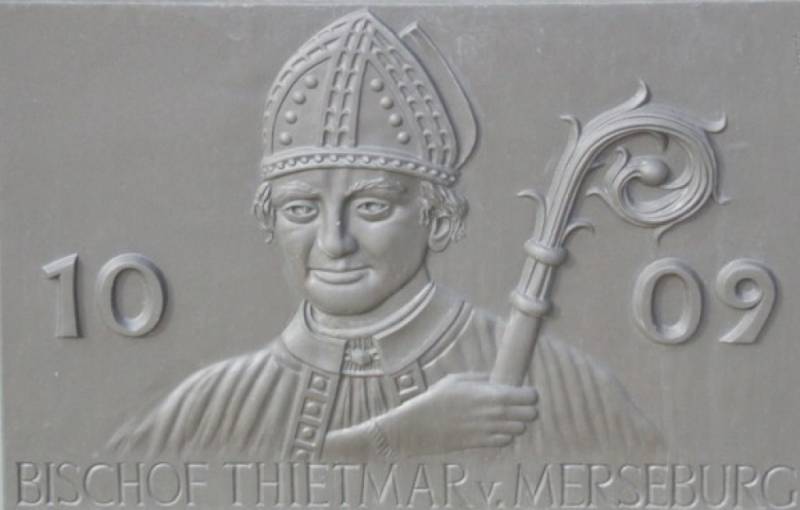
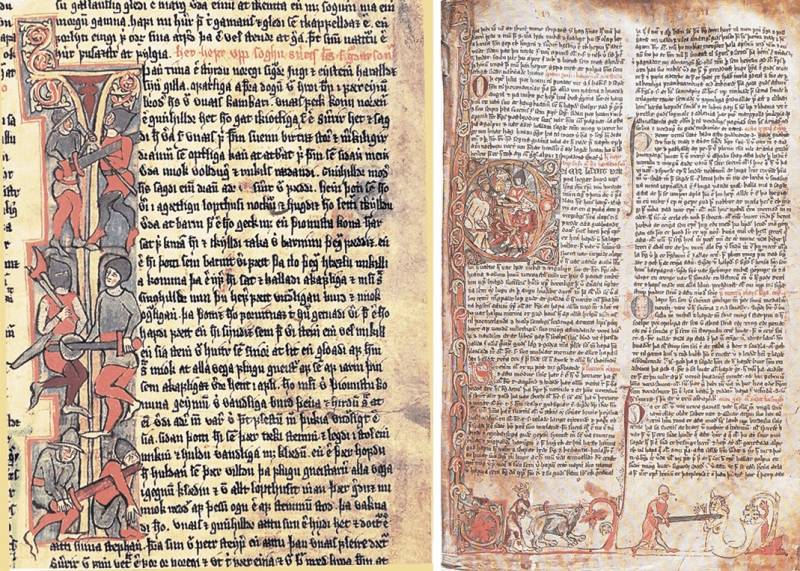
Information